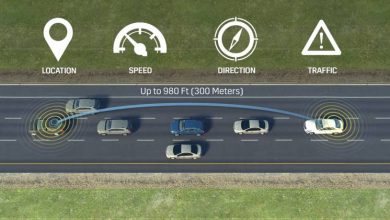What Is Agentic AI? A Practical Introduction to Autonomous AI Systems in Software Development

Welcome to the era of agentic AI, where artificial intelligence isn’t just intelligent, it’s self-directed. We’ve transitioned from AI that simply responds to prompts to AI that proactively takes initiative. Instead of waiting for instructions, agentic AI sets goals, plans approaches, and executes complex tasks with remarkable autonomy.
In this article, we’ll explore what agentic AI really means, how it differs from traditional AI systems, and how it’s beginning to reshape the software development landscape.
What Is Agentic AI?
Agentic AI refers to artificial intelligence systems (often named AI agents) that make decisions and take action without the need for constant prompting or human supervision. In other words, it plans and executes goals on its own based on its understanding of context and data, rather than responding only to direct instructions. Agentic AI systems integrate arrays of information from a variety of sources to form strategic solutions, identify problem areas, and implement key tasks — from optimizing logistics processes to protecting information and ensuring compliance with privacy regulations.
How does Agentic AI work?
Agentic AI frameworks consist of independent software modules called agents. Each agent is equipped with specialized capabilities and designated functions. These agents draw from large amounts of data and leverage advanced AI techniques to make decisions.
Large language models (LLMs) in agentic AI act as a key tool for cognitive analysis, allowing systems to define goals and generate human-like decisions. Together with other specialized models or algorithms, the LLM guides the agent’s decision-making process for planning and problem-solving.
Agentic AI operates through a sophisticated cycle of 4 processes:
Perception: On this stage, the AI agents gather and interpret data from diverse sources such as reading sensor inputs, digital interfaces, andretrieving data from databases.
Reason: Then comes the reason phrase. With the help of large language models (LLMs), agents develop action plans, interpret complex goals, and predict outcomes. During this step, the retrieval-augmented generation (RAG) technique is used to access proprietary data sources and deliver accurate, relevant outputs.
Act: Next, the agents perform actions to advance toward the goal. They execute tasks by interacting with external systems and software via APIs or issuing commands.
Learn: Last but not least, the agent learns from the outcome. It analyzes whether the action was successful or if adjustments are needed, at the same time refining its knowledge and updating its strategy for next time.
Why Agentic AI?
Autonomy: They can function without constant human supervision. They are ideal for cases where human intervention is impractical or unnecessary.
Creativity: Agentic AI can explore new solutions and hypotheses, potentially leading to breakthroughs in a variety of fields.
Flexibility: These systems are able to adapt to new data and circumstances by processing unexpected inputs and changes in the environment without manual supervision.
Goal-orientation: Agent AI is goal-driven. People tend to provide a high-level goal or determine the desired outcome, and the AI agent takes responsibility for deciding how to achieve it.
Problem Solving: Agentic AI is able to solve complex multi-step problems that often go beyond the capabilities of traditional AI.
Adaptability: AI agents become smarter with experience, learning from each task and outcome to cope with new challenges more effectively. Unlike traditional software that follows fixed instructions, agent-based AI uses intelligent learning models and continuous adaptation to remain effective as the environments change.
Applications of Agentic AI
Agentic AI has a broad range of applications across different industries.
In software development, it helps with IT operations and coding. With a description of a wanted program, an agentic AI could plan out the modules needed, write the code for each component, test it, and iterate until it meets the requirements.
In customer service and support, through agentic AI technology, virtual assistants and chatbots can automatically address customer questions, identify and fix problems, and carry out service deliveries while operating independently of human support.
Many other fields, like healthcare, cybersecurity, marketing, manufacturing, finance, logistics, and others, benefit from agentic AI. Across all applications, the defining characteristic of agentic AI is the capacity to assume roles traditionally done by humans or fixed programs, while introducing independent thinking and continuous improvement.
Challenges and Considerations of Agentic AI
Despite bringing a bunch of advantages, Agentic AI may also pose some risks.
First, there are security and compliance risks. Agentic AI interacts with multiple systems and handles sensitive data, creating more opportunities for security breaches.
Second, there are concerns about trust and reliability. Unlike traditional systems, where every action is directly commanded, agentic AI operates with a degree of unpredictability that requires new approaches to trust and verification.
Next, AI agents remain prone to errors and can generate false information during their reasoning processes, particularly when operating through probability-based models that involve uncertainty.
One more thing is that implementing agentic AI requires significant infrastructure investments and workflow redesigns. The technology also demands new skills from development teams. Engineers must learn to work collaboratively with AI agents, understanding how to provide effective guidance and oversight while allowing beneficial autonomous operation.
Conclusion
The era of autonomous AI in software development has arrived. Agentic AI is available today and ready to transform your development workflow. It represents the next major leap: systems that don’t just execute our instructions but actively contribute to the development process. One thing is obvious: the teams that begin experimenting with agentic AI now will be best positioned to leverage its full potential as it evolves.
Ready to accelerate your agentic AI projects? Contact Agiliwayto power your next-generation AI applications.




